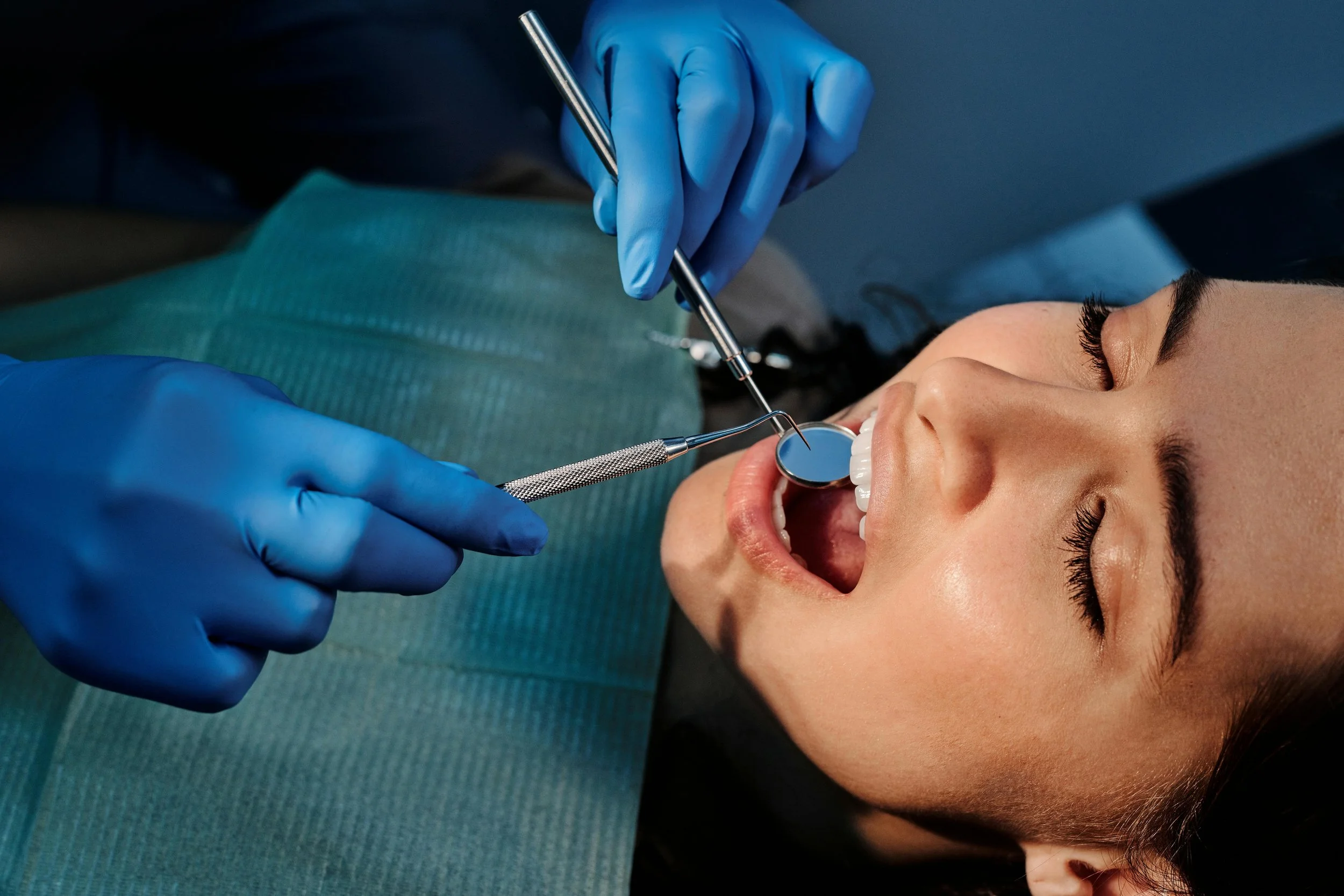Many people wonder how often should you go to the dentist, especially when their teeth feel fine and there’s no obvious pain or discomfort. Is it every six months, once a year, or only when something feels wrong?
The truth is, the ideal frequency for dental visits can vary depending on your oral health, lifestyle habits, medical conditions, and even genetics. While some people may do well with annual checkups, others may need to go more often to manage issues like gum disease, frequent cavities, or dental restorations.
Understanding the importance of regular dental care, and knowing when it’s time to see your dentist, can make a big difference in maintaining not just your smile but your overall health.
In this article, we’ll break down the typical recommendations for dental visits, explore who may need to be seen more often, look at the consequences of putting off appointments, and highlight the benefits of staying on a consistent schedule. You’ll also learn how to find a dental routine that fits your specific needs, so you can stay ahead of problems before they start.
Your Roadmap for Dental Visits
-
Typical visit schedule for most people
-
Who may need more frequent appointments
-
What happens when you skip dentist visits
-
Benefits of periodic checkups
-
How to decide your personal schedule
Everyday Frequency: What’s Normal for Dental Visits
For many people with generally good oral health, visiting the dentist every six months for a checkup and cleaning is a common recommendation. This schedule allows your dentist to remove plaque and tartar that build up in places you may miss at home, check for early warning signs of dental decay or gum disease, and maintain your overall oral hygiene.
Some people with low risk for dental problems and excellent home care may be able to go once a year. However, that should only be done under the advice of a dental professional.
When “Normal” Isn’t Enough: Who Needs More Frequent Visits
There are several reasons someone might need to see a dentist more often than the typical schedule:
-
You have a history of gum disease or are currently managing it
-
You are prone to cavities due to your diet, oral hygiene, or dry mouth
-
You have certain health conditions such as diabetes or immune disorders
-
You use tobacco or alcohol regularly
-
You have crowns, bridges, braces, implants, or other dental restorations
-
You notice signs of trouble like bleeding gums, sensitivity, discomfort, or changes in your teeth or mouth
In these cases, your dentist might recommend cleanings or exams every three or four months, depending on your condition.
What Risks Come from Skipping Dental Visits
Skipping dental visits for long periods can lead to a range of problems, some of which may go unnoticed until they become serious:
-
Cavities may grow silently and cause pain or infection if not caught early
-
Gum disease can develop and progress without obvious symptoms, leading to gum recession and tooth loss
-
Plaque hardens into tartar, which can’t be removed at home and raises the risk of both cavities and gum disease
-
Changes in soft tissues, such as early signs of oral cancer, might be missed without routine screenings
-
Minor issues, if ignored, often require more expensive and invasive treatments later
-
Poor oral health can affect your overall health, including heart health and blood sugar control
Benefits of Seeing the Dentist Periodically

Visiting the dentist regularly is a proactive step toward long-term oral and overall health. These routine checkups provide a chance for early intervention, personalized care, and professional insight that simply can’t be achieved at home, even with excellent brushing and flossing habits.
One of the most important advantages of consistent dental visits is early detection. Dentists can spot cavities, cracked teeth, infections, and signs of gum disease in their early stages, often before you notice symptoms yourself. By catching these issues early, treatment is typically less invasive, less expensive, and more successful in preserving natural teeth.
Professional cleanings are another key benefit. Even with great oral hygiene, plaque and tartar can build up in hard-to-reach places. Dental hygienists use specialized tools to remove these deposits, polish the surfaces of your teeth, and reduce inflammation in your gums. This not only keeps your mouth feeling fresh, but also helps prevent gum disease and tooth decay from progressing.
Preventive care is tailored during these visits based on your age, risk level, and oral history. Children and adults who are more prone to cavities may receive fluoride treatments or dental sealants to help protect their teeth. These small preventive steps can make a big difference over time, especially for patients with a history of decay.
For those with crowns, bridges, implants, or braces, regular checkups ensure that these restorations are functioning properly. Your dentist can monitor for signs of wear, shifting, or other complications and make adjustments as needed. Additionally, patients with underlying health issues such as diabetes or autoimmune disorders may benefit from closer dental oversight.
Dentists also screen for more serious concerns during routine exams. These include abnormalities in the soft tissues of the mouth, such as sores, lesions, or discoloration that could signal oral cancer or other systemic health problems. Early detection in these cases can be life-saving.
Finally, regular visits offer peace of mind. Knowing that your oral health is being professionally monitored means fewer surprises, less anxiety, and a better understanding of how to care for your teeth and gums at home. Whether it’s reviewing your brushing technique, discussing dietary habits, or answering questions, your dental team becomes a partner in maintaining your health.
Overall, periodic dental visits are an investment in your well-being. They provide a strong foundation for a healthier mouth and reduce the likelihood of emergency visits, complex procedures, or long-term dental damage.
Putting It Into Practice: Setting Your Schedule
If you’re wondering how often to go to dentist appointments, consider your specific health situation. Here are some steps to help you make the right decision:
-
Talk to your dentist about your health history, lifestyle habits, and home care routine
-
Watch for early warning signs such as bleeding gums, mouth pain, sensitivity, or changes in your teeth
-
Stick to consistent brushing and flossing habits at home
-
Follow the schedule your dentist recommends, whether that’s every six months, every three months, or once a year
-
Don’t wait for pain or emergencies before scheduling care
If you’re not sure where to start, or it’s been a while since your last checkup, it’s a good time to connect with a dentist near Deadwood who can guide you based on your individual needs.
In Summary: Stay Ahead, Stay Healthy
If you’ve been asking yourself how often should you go to the dentist, the best answer is to follow a routine that matches your personal oral health needs. For many people, two visits a year provide excellent preventive care.
For others, especially those with risk factors or existing dental conditions, more frequent visits may be necessary. Either way, staying on top of your dental care with the help of a professional will save you time, money, and unnecessary discomfort in the long run.
References
-
How Often Should You Go to the Dentist for Checkups – Penn Dental Medicine https://penndentalmedicine.org/phmc-cedar-campus/blog/how-often-to-see-dentist/
-
Dental Visits – Health, United States (CDC) https://www.cdc.gov/nchs/hus/topics/dental-visits.htm
